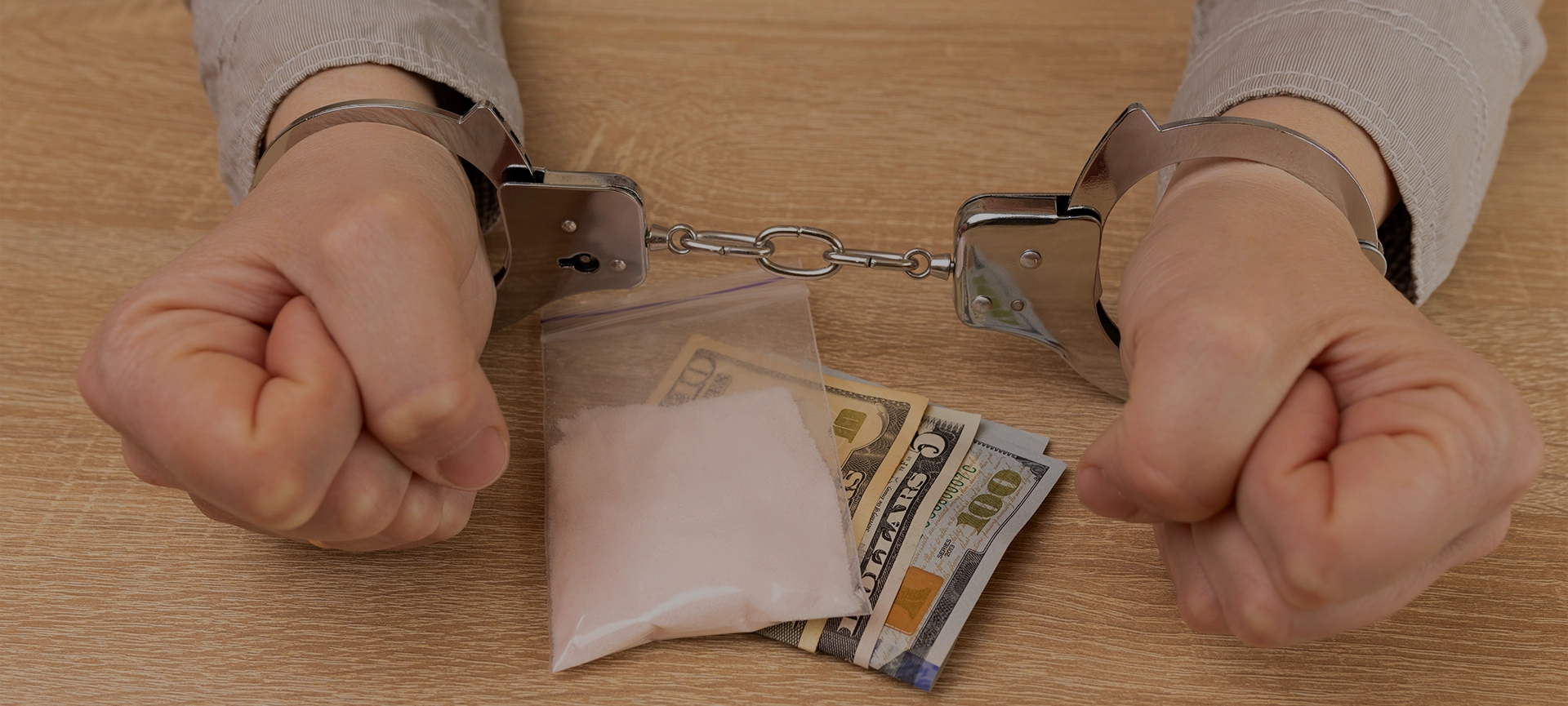In Canada, repeat offenders are more likely to receive harsher penalties and longer jail sentences. Conversely, the criminal system is designed so that first offences are treated more leniently, as the offender doesn’t yet have a history of criminal activity.
However, there are still plenty of factors that will determine the charges for first-offence drug possession in Ontario.
How Drug Possession Charges in Ontario Are Classified
Drugs in Canada are organized into four main schedules. Schedule I is seen as the most serious, with IV being the least.
Schedule I – Hard drugs such as heroin, cocaine, and methamphetamine
Schedule II – Cannabis and all of its derivatives
Schedule III – Substances such as LSD and amphetamines
Schedule IV – Mostly prescription medicines that can be subject to misuse
Crucially, possession of all of these substances is considered a hybrid offence. This means the Crown has the discretion to proceed with the case either summarily (less serious) or by indictment (more serious).
The category chosen will depend on a wide range of factors, such as the quantity of drugs or if trafficking was involved. Whether it’s a first offence or not will also be considered. Either way, it’s vital to reach out to an experienced drug offence lawyer so they can start building your defence.
Related Article: https://www.agpllp.ca/the-different-types-of-criminal-charges-in-ottawa/
Penalties for a Summary Conviction
A summary conviction is the most likely scenario for first-time offenders. This will be almost certain if there is only a small quantity of drugs for personal use. For these cases, the maximum penalties may be:
- A fine of up to $1,000
- Up to six months in jail
- It’s also possible that both penalties could be applied
While they may be the maximum sentences, jail time is rare for first-time summary convictions. Courts are more likely to issue a discharge, especially if the individual has no previous record of any other crimes.
If discharged, you are still found guilty, but no conviction is registered. There are two types of discharge:
Absolute – This is where no conditions are attached, and the record of the crime is removed after one year.
Conditional – Here, there will be certain conditions that need to be met, such as probation. The record can be removed after three years.
Related Article: https://www.agpllp.ca/criminal-record-in-ontario-how-it-affects-travel-work-life/

Penalties for Indictable Offences
If the case involved a large quantity of drugs or there are other aggravating factors, the Crown may proceed by indictment. Here, the maximum sentence will depend on the schedule of the drug.
Schedule I – 7 years in prison
Schedule II – 5 years in prison
Schedule III – 3 years in prison
Schedule IV – 18 months in prison
As with summary penalties, it’s highly unlikely someone would be given the maximum sentence for first-time drug possession. There would have to be several aggravating factors to receive significant jail time.
Aggravating Factors
We’ve talked a little about aggravating factors, but what are they? These are aspects of the case that make it more serious in the eyes of the criminal justice system. Let’s take a look at the most common ones for drug possession:
Large Quantity of Drugs – If the drugs are for personal use, this is seen a less severe. However, a large quantity of drugs may suggest an intent to traffic or otherwise profit from the drugs.
High-Risk Drugs – If the drugs are particularly dangerous, such as schedule I substances, the Crown may feel they pose a higher risk to public health.
Prior Criminal Record – While you may not have a prior drug possession charge, past criminal behaviour can be taken into account. This will be especially true for any related drug charges or violent offences.
Possession in a Child Environment – Possession near schools, playgrounds or anywhere else children are likely to be is seen as more serious.
Possession of Trafficking Items – Even if the Crown doesn’t feel they have enough evidence for a trafficking charge, being in possession of items associated with this offence can be aggravating. Examples include trafficking tools (scales, baggies, packaging, etc.), large amounts of cash, and multiple mobile phones.
Association with Violence or Weapons – The drugs may have been found with weapons. It may also be that the type of drugs has been associated with violence or gang activity.
Any Other Factors – This is not an exhaustive list. Anything relevant to the case may be used as an aggravating factor. If the drug possession case has none of these factors related to it, avoiding jail time becomes highly likely.
Diversion and Alternative Measures
The courts in Ontario have been increasingly using diversion programs when handling simple possession cases. These allow first-time offenders to avoid criminal charges by participating in the likes of counselling, rehabilitation, or community service.
If the program is successfully completed, the charges can be withdrawn or stayed. This means that no criminal conviction appears on your record. This is an attempt to move towards rehabilitation for non-violent drug users instead of just punishment.
The judge will have the discretion to impose whatever sentence they feel is appropriate for the situation, including mandatory treatment and education programs. Fines can still be ordered, but the individual’s ability to pay will be considered.

Why Cannabis is Different
Cannabis has been treated differently since the law was amended in 2018. Canadian citizens are now able to possess up to 30 grams of cannabis. However, any possession over that limit is still considered an offence.
Possessing just over the limit is likely to simply result in a fine without any criminal record. Significantly over the limit can result in the sentences we looked at above. These cases are now dealt with under the Cannabis Act.
Final Thoughts
The charges for first-offence drug possession in Ontario will depend on a range of factors. However, it’s important to consider that it does not automatically lead to a criminal record or time behind bars. Often, the justice system will focus on rehabilitation rather than punishment.
While that’s true, cases can be tricky, and there can often be long-lasting personal and professional consequences. If you require legal help, get in touch with AGP LLP today. We’ll be happy to look into your case to see how we can advocate on your behalf.





